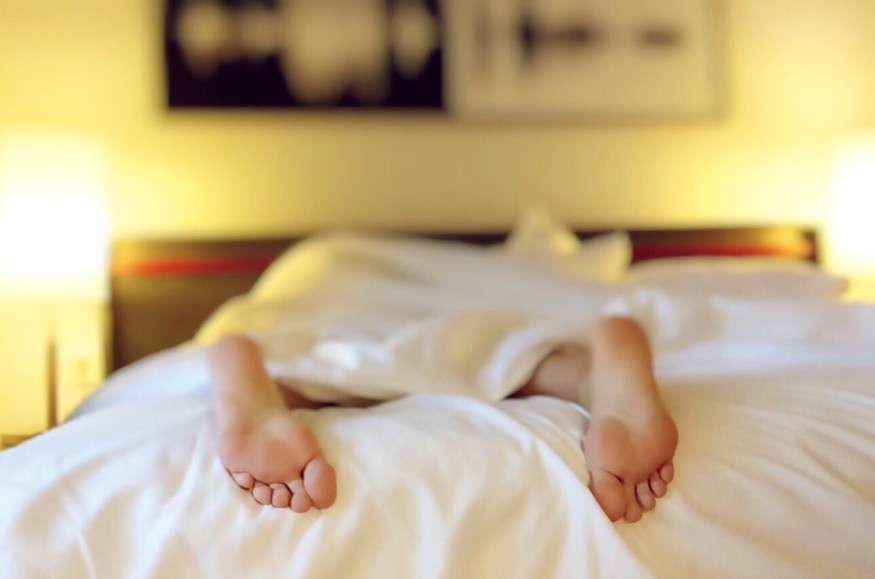
Are you training for an important sporting event? If so, cardio, weightlifting, and a healthy diet are probably part of your improvement plan.
Does getting quality sleep make the list of must-dos for those in training to achieve their physical peak? In a new study, mattress retailer Zoma Sleep asked more than 1,000 athletes about their preparation and training methods for successful performances. They even shared some of their regrets about their less-than-stellar efforts while competing. Here are some of the highlights.
Sleep for the Win
Have you ever wondered which athletes sleep the best the night before their games? According to the study, 78.3 percent of golfers reported feeling well-rested the night before their competition, the most of any sport analyzed. On the other hand, almost 1 in 4 half-marathon or marathon runners were exhausted before they hit the starting line.
Why did these athletes feel this way? Nearly 1 in 5 respondents overslept or almost overslept for their last event, and people feeling exhausted the day of their competition were three times more likely than well-rested participants to be injured during their contest.
So how important is sleep when preparing for a competition? More than 1 in 3 athletes found it necessary enough to adjust their sleep schedule before their performance. The report revealed that those who were well-rested were more likely than those who were exhausted to believe they performed very good or excellent during their sporting event.
Making sleep a priority can be showcased in many different ways. One 28-year-old athlete said they begin their evening routine earlier to ensure they're in bed on time and asleep shortly after.
Making Bedtime Adjustments
Making sure you get enough sleep is not the only important aspect of rest before a sporting event that needs to improve. Adjustments might need to be made depending on the time of the game, as well.
Nearly 3 in 5 respondents reported adjusting their training schedule to match the time of the event, and 1 in 10 people said it significantly improved their performance. Approximately 30 percent of athletes surveyed who didn't train around the event time before their competition said they wish they had.
Athletes who participated in 5K or 10K races (25.5 percent), weightlifting (18.7 percent), and swimming (13 percent) events were the most likely to adjust their training schedules to match their event time. Only 1.7 percent of obstacle course athletes changed their training schedule, making them the least likely group to institute a new program.
When asked what helped each athlete sleep the night before their most recent event, one 44-year-old respondent mentioned having blackout curtains, a weighted blanket, and a humidifier in their room, claiming that those items improved the quality of their sleep.
Morning Routine Tips
Can changes to a morning routine help athletes perform better? When respondents ate a bigger breakfast than usual, nearly 1 in 10 said they performed excellently, and 34.1 percent said they performed very well during their most recent event. Almost half (47.7 percent) of athletes who felt they did poorly at their last event skipped breakfast that morning.
Scheduling a wake-up call also proved to be successful for those who tried it: 8.7 percent of people who did this said they performed excellently, and 1 in 4 said they had a very good performance. Still, more than half (52 percent) of athletes who set extra alarms felt their performance was only good, and more than 1 in 3 half-marathon or marathon runners experienced a stress dream or nightmare the night before their most recent event. Not only do many half-marathon and marathon runners struggle with bad dreams the night before their games, but almost half (42 percent) of people who recently competed in those events either overslept or almost overslept.
Tips From the Pros
What was the biggest regret among these athletes, and what would they have done differently? They wished they would have taken a better approach to scheduling the sleep leading to their event. The study showed that the ideal amount of sleep the night before a sporting event is seven or more hours.
Some people compete for self-improvement, and others compete professionally, yet no matter the reason, quality sleep can positively impact an athlete's performance. Whether you purchase a weighted blanket, eat a more substantial breakfast, or go to bed earlier, many adjustments are available that can improve the outcome of your training.
© 2026 NatureWorldNews.com All rights reserved. Do not reproduce without permission.





